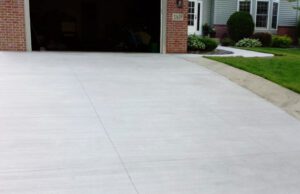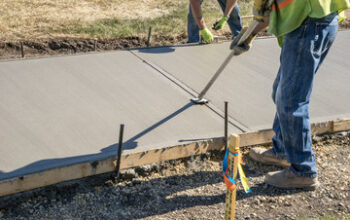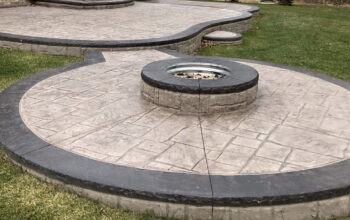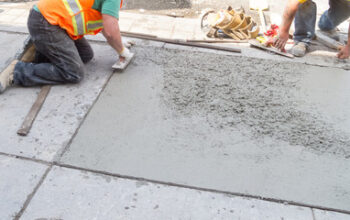When you are installing a new driveway, it is important to consider the thickness of the concrete you plan on pouring. The thickness you choose will depend on the weight of your vehicle, the soil in which you live, and your budget. A standard thickness is three to four inches. If you’re going to use your driveway for heavy-duty vehicles, you should choose a thicker concrete slab. There are many ways to customize the thickness of your driveway. 
When planning the base for a concrete driveway, it’s important to choose a stable, level surface. A driveway on the swollen ground is more likely to crack. The same goes for trees. Big trees have creeping roots that can exert a tremendous amount of pressure on the foundation. When a large tree is growing nearby, the roots will push the concrete upward, causing cracks. It’s important to choose a solid base if you want your driveway to last for many years.
A concrete driveway will complement and enhance your home’s overall aesthetic appeal. You can choose a concrete color that matches your home’s exterior, and you can even choose a pattern. This type of driveway will typically cost a little more than a stone or brick driveway, but the extra effort will pay off in the long run. And the best part? It will last at least half a century. So it will be a durable investment, too.
To get an accurate estimate, you should know the length of your driveway. By using a drawing, multiply the length by the width and depth, and divide by twenty-seven. The concrete order is expressed in cubic yards, so make sure to add ten percent to allow for errors. You’ll also want to know the costs for gravel, fabric underlayment, installation labor, rebar or mesh wire, and permits. And remember that concrete costs more if you choose to add extras, but you can always add on more.
The length of time a concrete driveway can last depends on the type of weather it is exposed to. If it is exposed to extreme weather, such as rain and snow, it may suffer extensive damage. The sun can also take its toll, damaging concrete from excessive exposure to ultraviolet rays. Even if the cracks are minor, they can lead to hairline fractures and minor cracks in the concrete. If you are worried about the longevity of your concrete driveway, you should consult with your contractor about the proper maintenance.
When preparing to pour concrete, you should prepare the surface first. Crushed rock and gravel can be used for the base of the driveway. The gravel and crushed rock can be compacted using vibratory plate compactors. Once you’ve laid down the base, the next step is to lay the forms. Using a power drill, you can attach the forms and make sure they’re anchored to the ground. To finish the driveway, you should install insulation along the sides.
If you want your new driveway to last for many years, consider installing a concrete driveway. This material is sturdy enough to hold heavy vehicles without cracking. However, if you plan to park your heavy vehicle on your driveway, be sure to check with your contractor and ask for the proper loading capacity. If the weight of your car is too much, it could cause the driveway to buckle and cause an ugly pothole. If you do decide to install a concrete driveway, you should make sure it is reinforced most durably.
Cost is an important consideration when deciding to install a concrete driveway. While the cost of labor and materials is the largest percentage of the total, concrete costs around $4 to seven dollars per square foot. In most cases, labor is about half of the total cost of installing a driveway, but it can be up to $10 per square foot. In general, you should budget between $3 and $10 per square foot for your driveway, which will be very affordable if you are concerned about the initial cost.
While installing a concrete driveway, be sure to check the local building codes. While some jurisdictions require a certain thickness for driveways, others require a certain width for the driveway. You should also check for the proper amount of soil in your local area before you start the project. Depending on where you live, a concrete driveway may require more or less rebar than you want. Most reputable contractors won’t pour a driveway without rebar.



